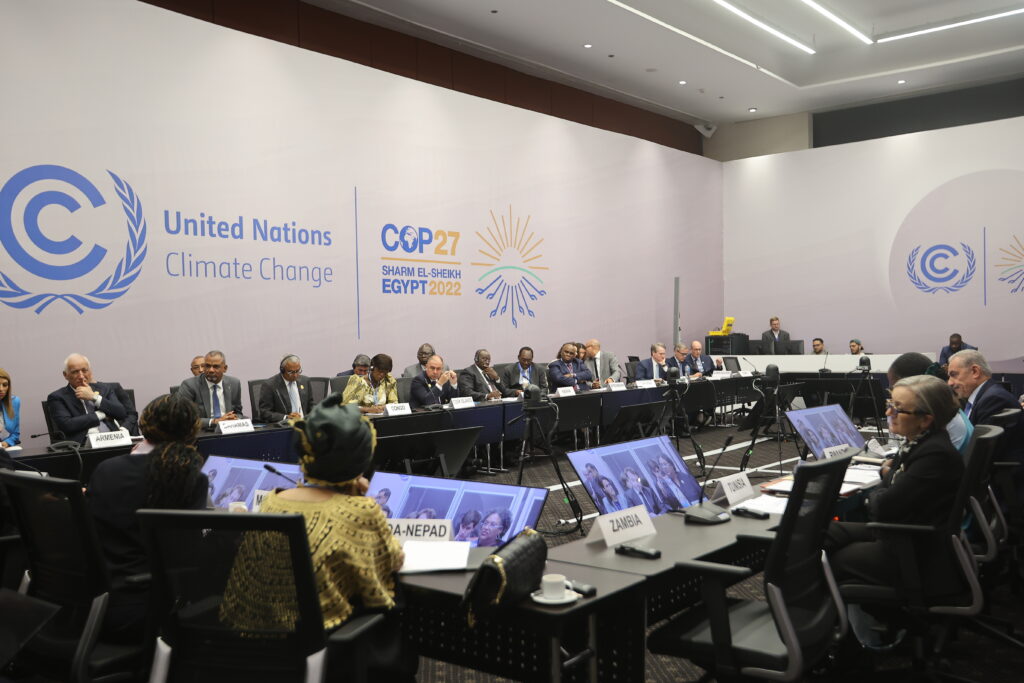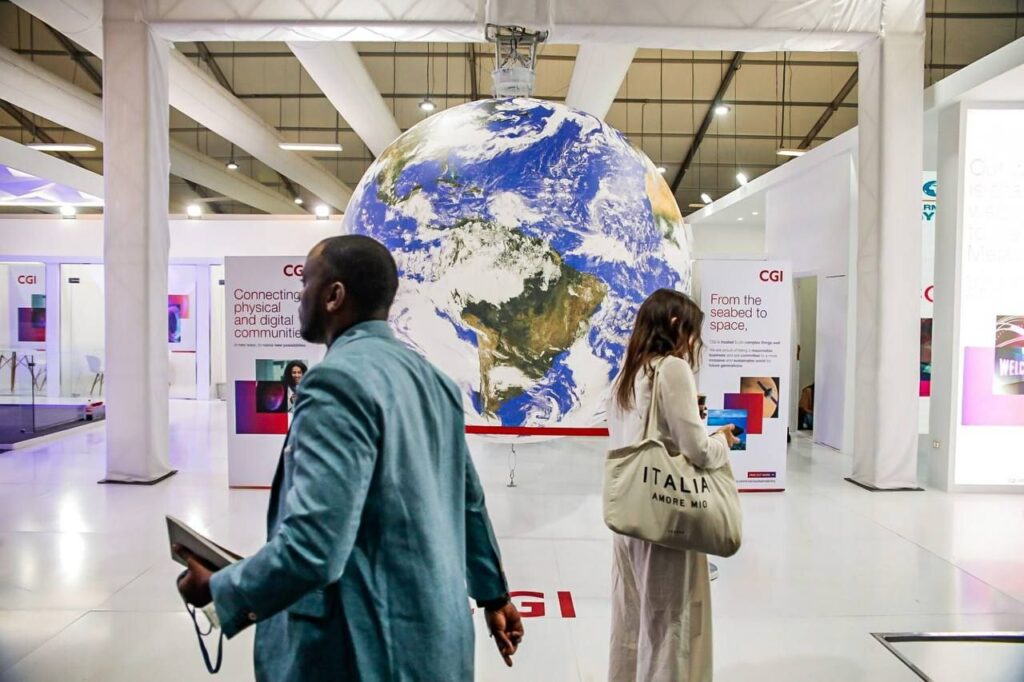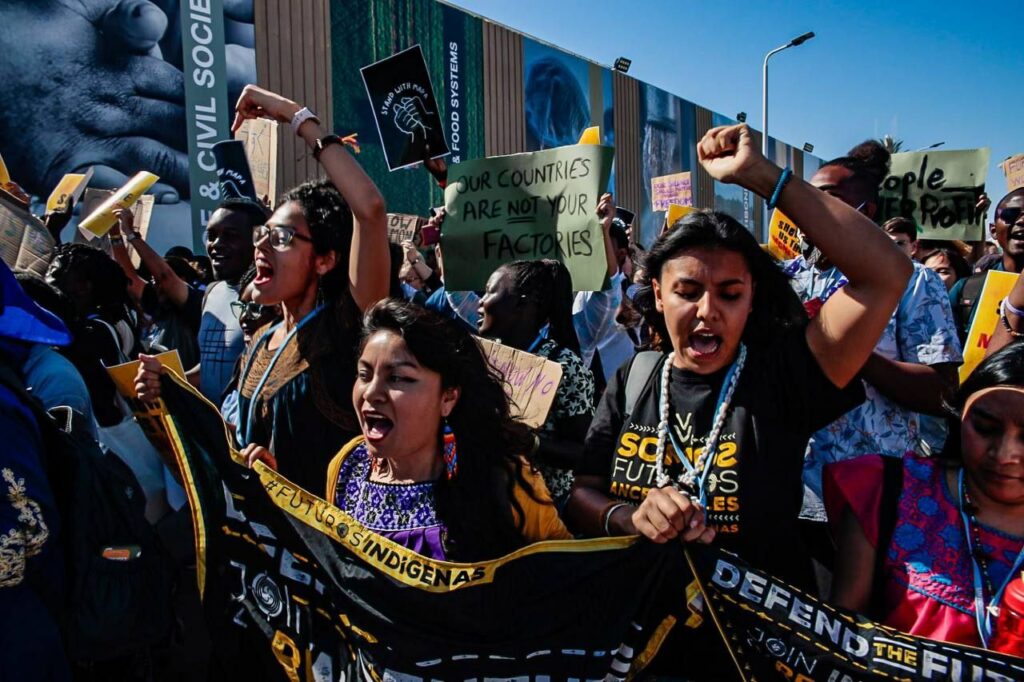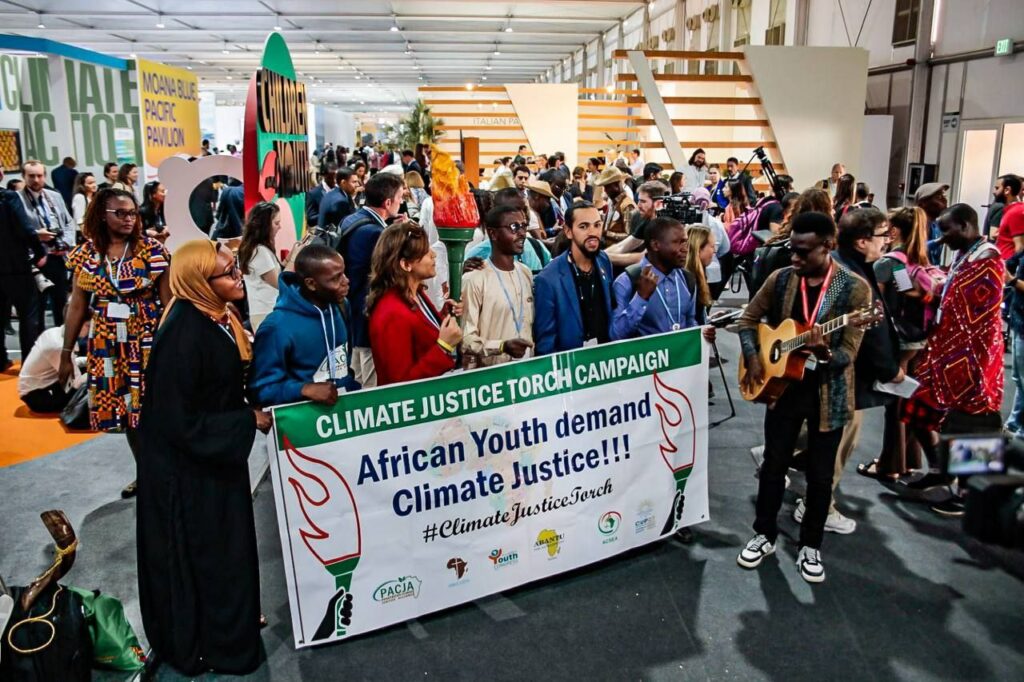




By Tyrell Gittens
As negotiations wrap up this week at the 27th United Nations Climate Change Conference (COP27) in Egypt and island nations wait for a decision on climate loss and damage finance, officials from ongoing international climate initiatives funded by Global North countries are touting the effectiveness of existing projects.
On November 14, the United States Department of State held a panel discussion at COP27 to reflect on the progress made by the Local2030 Islands Network initiative and Renewable Energy in Latin America and the Caribbean (RELAC) initiative which are both geared towards building climate resilience in the Global South.
Launched in 2019, the Local2030 network comprises 15 countries including the Caribbean islands of Curacao, Bonaire, Puerto Rico, the British Virgin Islands, Antigua and Barbuda, Grenada, and Trinidad and Tobago.
The network seeks to foster innovative climate solutions on the principles of identifying local goals to further sustainable development, strengthening public-private partnerships to fund climate action, implementing concrete climate action and accurately measuring progress.
US Special Envoy for biodiversity and water resources Monica Medina said participating Caribbean countries have benefited from the Local2030 and RELAC initiatives.
Funded by the US and Inter-American Development Bank, countries participating in RELAC have set a target of 100 percent renewable energy use by 2030.
Under Local2030, countries have pledged to develop sustainable tourism industries.
Medina said, “One thing I’ve loved to see the islands sharing is the concept of data dashboards which is not only a way to share data with the public but also a way to build trust.
“What we love to see is the peer to peer exchange of information, the sharing of knowledge and traditional knowledge in particular because we have so much that we can learn from traditional knowledge.”
While some may think the US doesn’t share similar climate vulnerabilities with island nations, National Oceanic and Atmospheric Administration (NOAA) Under Secretary for oceans and atmosphere, Dr Richard Spinrad explained why this isn’t the case.
Spinrad said the US’ coastal states and overseas island territories are vulnerable to sea level rise, extreme weather events, and increasing ocean acidification.
As a result of this, Spinrad said it’s clear to see the effects of climate change on ecosystems, economies and culture.
Spinrad explained that “islands are at the forefront of addressing the climate crisis (and they are) working together to harness traditional knowledge, scientific knowledge and technology to support innovative solutions to move towards sustainable development.
“The Local2030 Island Network seeks to integrate national and local priorities and values to create inclusive as well as equitable partnerships that foster codevelopment across boundaries.”
The NOAA provides data, training, technical expertise and other resources to the members of the Local2030 network.
The agency also assists with the creation of climate models which are then analysed to help with policy development.
“We draw from our own data and information sources as well as those developed by other international partnerships in the Pacific to link climate information to identified priorities such as food security, coastal resilience, public health and safety.
“We do this through numerous programmes such as NOAA’s Ocean Reef Watch as well as the Pacific Climate Change Monitor.”
Ultimately, Spinrad said the NOAA’s goal is to empower countries to adopt nature-based solutions like expanding mangroves on coastlines and restoring forests.
In doing so, the goal is to strengthen every country’s resilience against extreme tropical systems in particular.
Representing Antigua and Barbuda’s Department of Environment, environmental specialist Ezra Christopher said the country’s size not only exacerbates its climate vulnerabilities, but also places constraints on its abilities to fulfill ambitious carbon reduction targets and sustainable development goals.
However, as a member of the existing climate partnerships, Christopher said the country has been able to build its human, institutional, technical and technological capacities.
She added: “As a small island developing state, we welcome opportunities to partner with our peers such as the Local2030 network.
“We do recognise this is a key opportunity that we can take advantage of to learn what has been done by others before us.”
The country continues to work with the US National Renewable Energy Lab on a just energy transition policy and producing solar systems to convert and implement solar power in schools and clinics.
She added: “We also received assistance for a community based solar programme and we received some financial support in our sister island of Barbuda for a solar and energy storage system to help rebuild the island affected by the 2017 hurricane.”
The Netherlands climate envoy Jaime de Bourbon de Parme said the country’s overseas territories of Aruba, Bonaire and Curacao joined the Local2030 initiative and has received the support of the Dutch Government.
In Bonaire, climate roundtables have started in a bid to adopt an inclusive governance approach to building the island’s resilience.
Parme added: “In Curacao, we developed the Living Lab which is all about climate action and green innovation to really foster a way forward.
“The Netherlands have now decided to join this initiative so that it can help its islands move forward with renewable energy.”
Extensive efforts also continue to find ways to climate proof renewable energy infrastructure on the islands, like making wind turbines resilient to tropical systems.
Palau’s Minister of State for Foreign Affairs Gustav Aitaro appreciated the support given to his country to build its climate resilience.
Lamenting pacific nations like Palau may cease to exist because of climate change, Aitaro said initiatives like the Local2030 network show Global North and South can work together for climate solutions.
Palau has set a target of 100 percent renewable energy use by 2030 and Australia has already provided over $30 million to support the effort.
As he reflected on the discussion, Global Climate Partnership’s executive director Ron Benioff said international climate partnerships can have “immense potential and impact as they harness the collective energy of people working together and setting common goals.”
By creating peer learning, Benioff pointed out climate solutions and sustainable development become easier to achieve, especially if local community projects are connected.
Lauding the Local2030 initiative, Benioff added the voices of island nations are amplified when in-sync.
“Responding to the global climate challenge requires an unprecedented international collaboration,” he said.
“By working together in an equitable and inclusive manner … we can more quickly reach our shared goals and we can overcome some of the disciplinary, geographic and political boundaries that constrain our progress when we just work within our individual borders.”
Tyrell Gittens is a conservationist, environmentalist and geographer dedicated to the sustainable development of T&T and the advancement of environmental education.
Thoughts and views expressed in Observations do not necessarily reflect the opinion of Observer Newsco, its management or staff.

